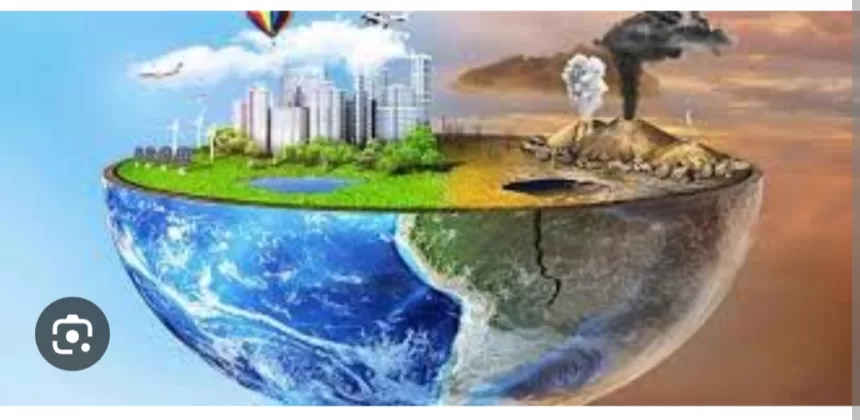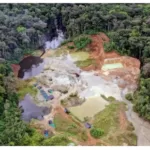In the ongoing battle against the climate crisis, the voices of young climate activists are being stifled by legal barriers, raising concerns among experts. As governments and organizations worldwide submit formal comments on climate breakdown to the world’s top courts, it has become evident that children have limited participation in the legal process in nearly all jurisdictions.
Young people, who are particularly vulnerable to the climate crisis, are facing mounting challenges. Over the past six years, extreme weather events have led to at least 43 million child displacements. Additionally, the climate crisis is causing widespread chronic anxiety, with Britain’s leading pediatrician warning that it poses an “existential risk” to the health and well-being of all children.
In response to their inability to influence the political system through voting, young people are increasingly engaging in various forms of climate activism. The United Nations Rights body recently affirmed children’s right to sue governments over climate change and other environmental threats. However, the Committee on the Rights of the Child (CRC) identified significant barriers hindering young people from making claims and participating fully in the legal process.
This issue has garnered attention as part of requests for advisory opinions on the climate crisis presented to three influential international courts. Unfortunately, during a recent hearing at the International Tribunal for the Law of the Sea in Hamburg, formal evidence from organizations representing young people and the environment was not accepted, even as two babies joined their mothers in attendance.
Kelly Matheson, the deputy director of global climate litigation at the US nonprofit law firm Our Children’s Trust, recounted her experience of trying to submit a briefing on behalf of 24 young people, only to have it rejected within a matter of days. The International Court of Justice, which has also been tasked with providing an opinion on the climate crisis, is even more restrictive in the evidence it will accept. Even the Pacific Island students leading the request are unable to participate directly.
As a response to these limitations, the students have created a handbook urging governments to actively involve “young change-makers” in preparing submissions to the court. They are exploring the possibility of attaching annexes to state submissions.
Litigation is challenging and costly for everyone, but it is even more formidable for young people, emphasized Ashfaq Khalfan, the director of climate justice at Oxfam America. He stressed that ensuring access to remedy is a judicial responsibility.
Ann Skelton, a professor of law at the University of Pretoria and chair of the CRC, pointed out that minors are presumed to lack legal capacity and often require permission from their parents. Additionally, there is an assumption that translating complex legal concepts into language that young people can understand is more challenging than doing so for adults.
Furthermore, Skelton noted that children are frequently not taken seriously, stating, “There’s a reasonable acceptance that children can express their views nowadays – at least in some countries – but whether or not their views have to be given any weight is a separate question. In many countries, child participation amounts to little more than kindly listening.”
While some young activists have succeeded in making their case, such as six young people from Portugal who brought a lawsuit against 32 countries to the European Court of Human Rights, change is still needed. They described the physical and psychological effects of forest fires and the climate emergency on their lives, compelling the countries to defend themselves in court.
In the US, a court in Montana heard testimony from young people who argued their state had violated their right to a healthy environment, ultimately winning their case. Montana’s example is hailed as a model, as young people were allowed to attend the hearing and participate meaningfully in the proceedings.
Excluding young people from international courts dealing with an existential threat to humanity violates the fundamental principle of access to justice, according to Kelly Matheson. She emphasized that the courts have the authority to allow other voices into the process and should not shy away from doing so.
Skelton argued that young people’s access to the judicial system is essential because they cannot participate in the political one. “Because children can’t vote, it is more reasonable that they should be able to bring about change using whatever civic means may be available to them. And litigation, although challenging, is available to them, so there should be less objection to them engaging in it,” she said.
The urgency of addressing the climate crisis is paramount, as human-caused climate breakdown accelerates extreme weather events worldwide, resulting in loss of lives and livelihoods. The Guardian remains committed to delivering high-impact global reporting on this pressing issue.







